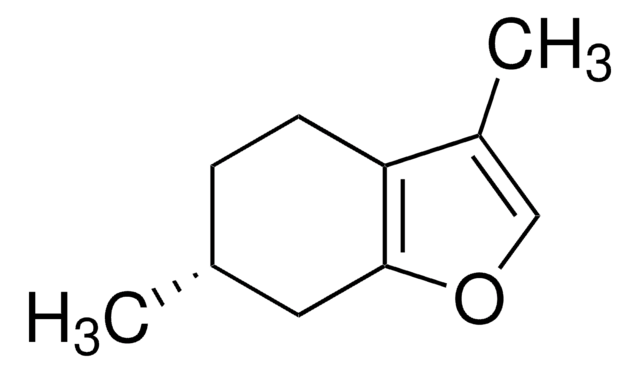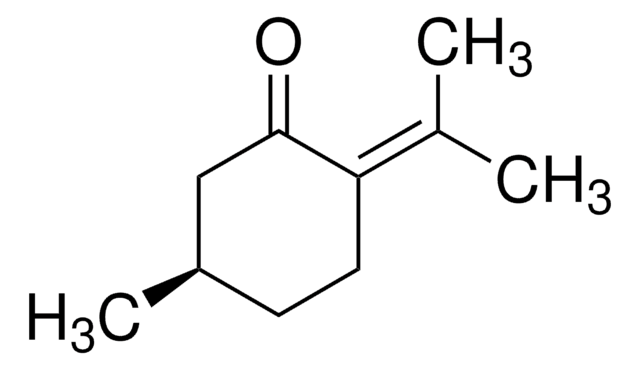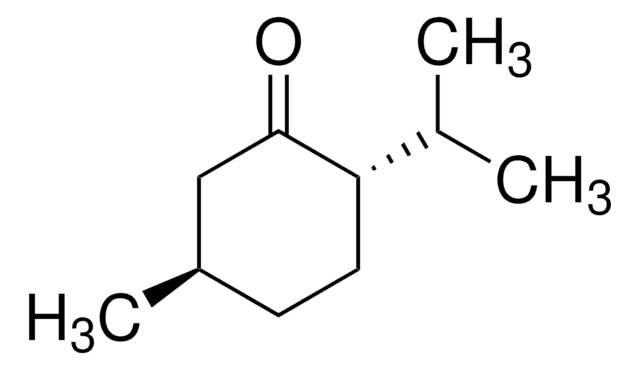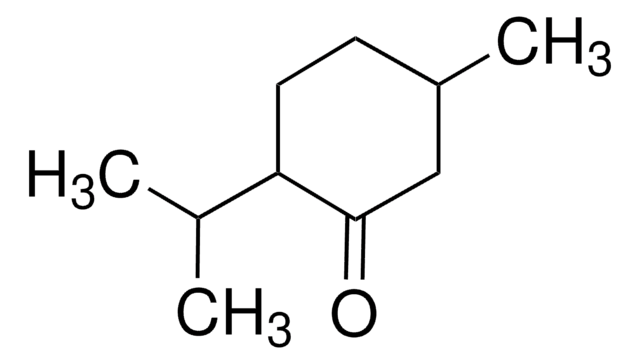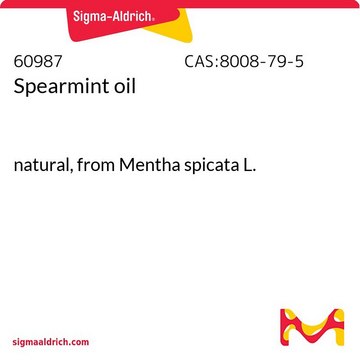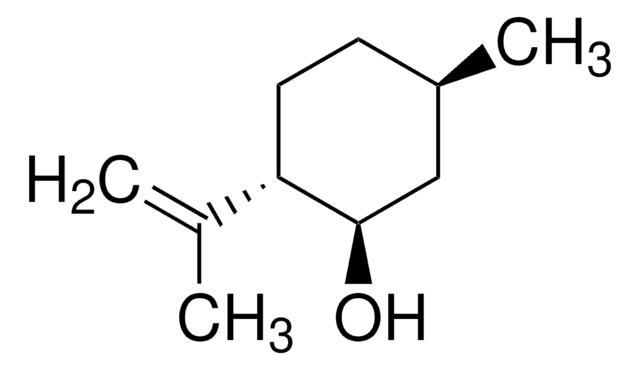22060
(−)-Carvone
analytical standard
Synonym(s):
(−)-p-Mentha 6,8-diene 2-one, (R)-5-Isopropenyl-2-methyl-2-cyclohexenone, Carvol
About This Item
Recommended Products
grade
analytical standard
Quality Level
Assay
≥99.0% (sum of enantiomers, GC)
optical activity
[α]20/D −61.5±2°, neat
shelf life
limited shelf life, expiry date on the label
technique(s)
HPLC: suitable
gas chromatography (GC): suitable
refractive index
n20/D 1.498
bp
228-230 °C (lit.)
density
0.960 g/mL at 20 °C (lit.)
application(s)
agriculture
cleaning products
cosmetics
environmental
flavors and fragrances
food and beverages
personal care
format
neat
SMILES string
CC(=C)[C@@H]1CC=C(C)C(=O)C1
InChI
1S/C10H14O/c1-7(2)9-5-4-8(3)10(11)6-9/h4,9H,1,5-6H2,2-3H3/t9-/m1/s1
InChI key
ULDHMXUKGWMISQ-SECBINFHSA-N
Looking for similar products? Visit Product Comparison Guide
General description
Application
Other Notes
Recommended products
Signal Word
Warning
Hazard Statements
Precautionary Statements
Hazard Classifications
Acute Tox. 4 Oral - Skin Sens. 1
Storage Class Code
10 - Combustible liquids
WGK
WGK 1
Flash Point(F)
192.2 °F - closed cup
Flash Point(C)
89 °C - closed cup
Personal Protective Equipment
Regulatory Listings
Regulatory Listings are mainly provided for chemical products. Only limited information can be provided here for non-chemical products. No entry means none of the components are listed. It is the user’s obligation to ensure the safe and legal use of the product.
FSL
Group 4: Flammable liquids
Type 3 petroleums
Hazardous rank III
Water insoluble liquid
ISHL Indicated Name
Substances Subject to be Indicated Names
ISHL Notified Names
Substances Subject to be Notified Names
JAN Code
22060-100ML-F:
22060-5ML-F:
22060-BULK-F:
22060-1ML-F:
22060-25ML-F:
22060-VAR-F:
Choose from one of the most recent versions:
Already Own This Product?
Find documentation for the products that you have recently purchased in the Document Library.
Customers Also Viewed
Articles
In this study we demonstrate the separation of D- and L-carvone enantiomers in samples of caraway seed, dill seed, native spearmint and scotch spearmint essential oils using an Astec CHIRALDEX G-TA capillary GC column.
Our team of scientists has experience in all areas of research including Life Science, Material Science, Chemical Synthesis, Chromatography, Analytical and many others.
Contact Technical Service





